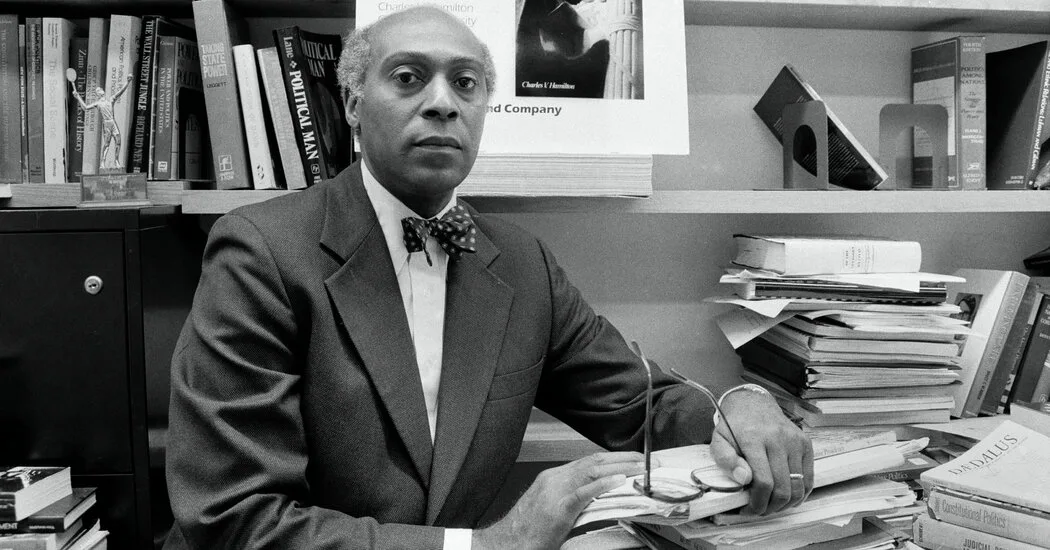
He popularized the term “institutional racism” and, with Stokely Carmichael, wrote a book in 1967 that was seen as a radical manifesto.
Charles V. Hamilton, a philosophical godfather of the Black Power movement, which he envisioned as the means to subvert what he stigmatized as America’s “institutional racism,” died on Nov. 18 in Chicago, it was recently confirmed. He was 94.
A friend and colleague, the South African educator Wilmot James, said he learned of the death from a representative of Dr. Hamilton’s bank. Dr. Hamilton’s nephew Kevin Lacey said it had not been previously announced because Dr. Hamilton was a private and modest man and was “concerned about what would and would not happen upon his passing.”
In 1967, Dr. Hamilton, a political scientist at historically Black colleges, and Stokely Carmichael (who later adopted the name Kwame Ture), a leader of the Student Nonviolent Coordinating Committee, discombobulated the multiracial anti-discrimination crusade that was radiating from the South to Northern cities at the time by publishing the manifesto “Black Power: The Politics of Liberation.”
Their book convulsed moderate and more conciliatory Black groups like the N.A.A.C.P. nearly as much as it confounded the white liberals who had traditionally supported civil rights. Moreover, its conclusion that racism was embedded in the nation’s institutions further antagonized white people who had opposed any preferences for Black people in government policies to mitigate discrimination in housing, jobs, public accommodations and education.
“Chuck was very definitely the intellectual alter ego to Stokely Carmichael,” his friend Jeh C. Johnson, the former secretary of homeland security, said in an interview. “He was not a screamer, he was not a rebel. He was a quiet, dignified, soft-spoken, very progressive intellect behind the Black Power movement. He was content to have Stokely as the out-front person on their book.”

